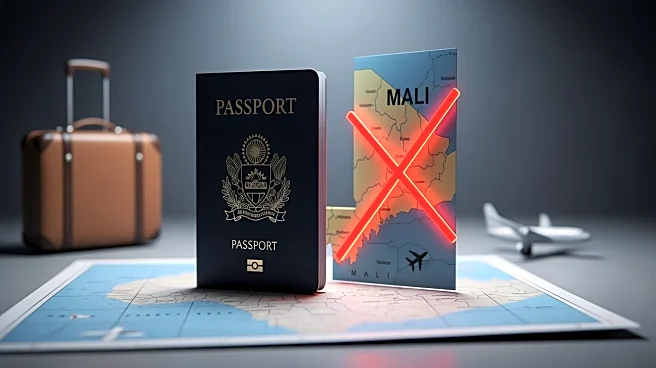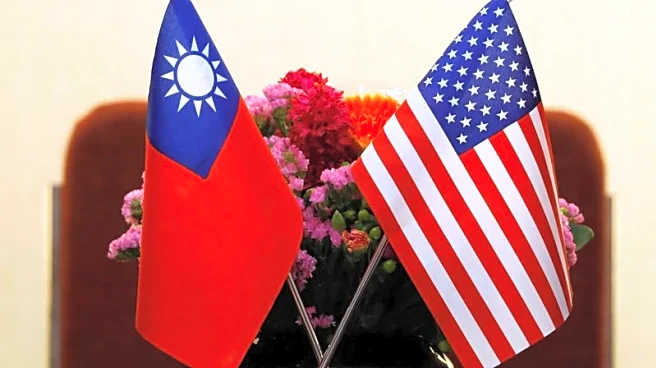What's Happening?
The French government has issued an urgent advisory for its citizens residing in Mali to leave the country due to a fuel blockade imposed by Islamist insurgents. The blockade, orchestrated by the al-Qaeda-affiliated
group Jama'at Nusrat al-Islam wal-Muslimin (JNIM), has severely disrupted daily life in Mali, affecting fuel supplies and electricity. The French foreign ministry has recommended that citizens depart using commercial flights while they are still available and avoid overland travel. This advisory follows the decision by MSC, the world's largest shipping company, to halt operations in Mali due to the deteriorating security situation. The blockade has been in place for two months, with insurgents attacking fuel tankers on major highways, exacerbating the crisis in the landlocked nation.
Why It's Important?
The situation in Mali highlights the ongoing instability in the region, which has significant implications for international relations and security. The fuel blockade not only disrupts daily life but also poses a threat to the overall security situation, potentially leading to further unrest. The withdrawal of French forces and the UN peacekeeping mission, coupled with the hiring of Russian mercenaries by Mali's military junta, underscores the complex geopolitical dynamics at play. The advisory for French citizens to leave Mali reflects the severity of the crisis and the challenges faced by foreign nationals in conflict zones. The impact on international businesses, such as MSC, further illustrates the economic ramifications of the insurgency.
What's Next?
The ongoing insurgency and fuel blockade in Mali are likely to continue affecting the country's stability and security. The military junta, led by Gen Assimi Goïta, faces the challenge of addressing the security crisis while maintaining control over the nation. The international community, including the United States, which has already withdrawn non-essential diplomatic staff, may need to reassess their involvement and support strategies in Mali. The situation may prompt further diplomatic and humanitarian responses as the crisis unfolds.
Beyond the Headlines
The situation in Mali raises broader questions about the effectiveness of foreign military interventions and the role of mercenaries in conflict zones. The reliance on Russian mercenaries by Mali's junta highlights the shifting alliances and strategies employed by governments facing insurgencies. Additionally, the blockade underscores the vulnerability of landlocked nations to supply chain disruptions, emphasizing the need for robust infrastructure and security measures.











